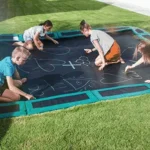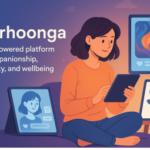Waking up after a collision can feel like stepping into a fog. The world moves around you, people speak, but something feels off—you just can’t seem to piece everything together. Memory gaps are unsettling, and if you’re here, you or someone you love is likely experiencing this struggle. The good news? Memory recovery is possible, and while it may take time, patience, and effort, many have successfully navigated this path.
Understanding Memory Loss After a Collision
Memory loss after a collision is common and can be attributed to various factors, such as head trauma, emotional shock, or even stress-induced amnesia. Whether it’s a minor fender-bender or a severe crash, the impact can shake the brain, leading to gaps in recollection. Some people forget moments right before the collision, while others experience longer-term issues with memory retrieval.
Types of memory loss after a collision can include:
Retrograde Amnesia: Forgetting events that happened before the accident.
Anterograde Amnesia: Struggling to form new memories after the collision.
Dissociative Amnesia: When psychological stress from the accident causes memory suppression.
Understanding where you stand can be the first step toward healing.
The Role of the Brain in Memory Recovery
Your brain is incredibly resilient, but it needs the right conditions to heal. The hippocampus, which is crucial for memory formation, might be temporarily impaired due to the collision.
Additionally, the brain’s neuroplasticity—its ability to rewire and form new connections—plays a crucial role in memory recovery. The more you engage in brain-boosting activities and give yourself time, the better your chances of regaining what was lost.
Steps to Recover Lost Memories
1. Give Yourself Time
It’s frustrating to deal with memory gaps, but patience is key. The brain needs time to repair itself, and stressing over forgetfulness can actually make things worse. Accept where you are and focus on gradual improvement rather than immediate results.
2. Engage in Memory-Boosting Activities
Memory recovery isn’t passive—you have to work at it. Here are some activities that can help:
Puzzles and Brain Games: Sudoku, crossword puzzles, and memory card games challenge the brain to improve recall.
Storytelling: Try recounting your day to a friend or writing it down in a journal.
Visualization Techniques: Associate new memories with strong visual cues to help them stick.
Music Therapy: Listening to familiar songs can trigger past emotions and recollections.
3. Maintain a Healthy Diet and Exercise Routine
Your brain needs fuel and movement to heal effectively. Incorporate foods rich in omega-3 fatty acids, antioxidants, and vitamins that support cognitive function. Regular exercise, even light activities like walking, helps boost blood circulation to the brain, promoting healing.
4. Use Memory Aids
If certain memories feel out of reach, use memory aids to jog your brain:
Keep a journal or voice notes to document daily events.
Use sticky notes or phone reminders for important tasks.
Look at old photos and videos to trigger recollections.
5. Seek Support from Loved Ones
Talking to friends and family about past events can help rebuild memory. They might remind you of things you forgot or share details that reconnect the missing pieces.
6. Practice Mindfulness and Meditation
Meditation helps reduce stress, which can improve memory retention. Mindfulness exercises train your brain to focus on the present moment, making it easier to store and recall memories.
7. Consider Professional Help
If memory loss is persistent or severely affecting your daily life, a cognitive therapist or neurologist can provide personalized strategies for recovery. Therapy sessions might include cognitive behavioral therapy (CBT) or memory rehabilitation exercises.
Frequently Asked Questions (FAQs)
Q1: How long does memory recovery take after a collision?
A: There’s no set timeline, as it varies from person to person. Some may recover within days, while others may take months or longer. Consistency in memory-boosting activities can speed up the process.
Q2: Will I ever regain all my lost memories?
A: It’s possible, but not guaranteed. Some memories return in fragments, while others may remain inaccessible. However, even if you don’t recall everything, you can still live a fulfilling life by creating new memories.
Q3: Can stress worsen memory loss?
A: Yes, high stress levels can impair memory function. Stress hormones like cortisol interfere with recall, making it crucial to practice relaxation techniques such as meditation and deep breathing.
Q4: Is memory loss after a collision permanent?
A: In most cases, no. The brain has an incredible ability to heal, and with the right care and strategies, many people regain most of their lost memories over time.
Q5: Does sleep help in memory recovery?
A: Absolutely. Quality sleep is essential for brain function, including memory consolidation. Aim for 7-9 hours of rest each night to support your recovery.
Conclusion
Recovering memories post-collision can feel like an uphill battle, but it’s a journey worth taking. The brain is an amazing organ, capable of resilience and adaptation. By engaging in memory-strengthening activities, maintaining a healthy lifestyle, and seeking support when needed, you can significantly improve your chances of regaining lost memories.
If you or a loved one is going through this, remember—healing takes time, and every small step forward is a victory. Stay patient, stay hopeful, and trust in the process of memory recovery.
Related Articles
Arcy Art Artists Directory: A Comprehensive Guide for Artists and Collectors
Alyson Heather Belcourt Tattoo: A Deep Dive into Her Art, Style, and Influence
Alien Ground Zero by StorySam – A Complete Guide
Everything You Need to Know About LookWhatMomFound Giveaways











